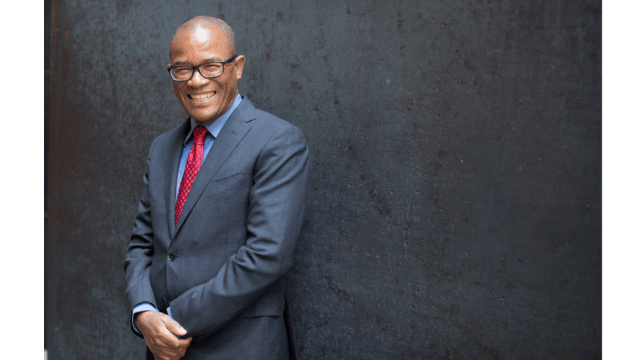I was fortunate to be among the first cohort of Al Akhawayn University Students
Aomar Boum, Class of 1997
As a native of an oasis in the margins of southeastern Morocco, I was fortunate to be among the first cohort of Al Akhawayn University students. My life-long academic interest in ethnic and religious minorities developed in the cocoon of the beautiful campus in the Middle Atlas Mountains. My trajectory toward expertise on minorities and Moroccan Judaism today is not a coincidence and has a lot to do with Al Akhawayn University being a space that fostered my interests by freeing me from the academic restrictions that I had encountered in my undergraduate studies in public universities in the late 1980s. For the first time in my life, I thrived with limited risks, enjoying the treasured books that I could check out from the library without any time constraints. The seed of my career planted in the campus of AUI slowly sprouted at the University of Arizona in Tucson, where I received my Ph.D. in socio-cultural anthropology and Middle Eastern history, and other campuses where I was able to have a global reach.
As I look back at my graduate studies in Ifrane, I cannot but be grateful for and appreciative of the world class education and training I received there as a student, employee, and teacher. I took advantage of all the opportunities the university offered for me to develop my skills in all areas that interested me. I was part of the first Drama Club in the history of university. I did stand-up comedy and I did not shy away from delving into cultural issues and questioning social norms and taboos. I was also involved in the student newspaper, serving as editor-in-chief and photographer of AUI News. I also taught at the Language Center and was an assistant in student activities and international studies programs. In these capacities, I met Moroccans and foreigners from different cultural, religious and social backgrounds. They indirectly taught me to appreciate who I am and to never strive to be like others. AUI taught me to appreciate my indigenous southern Moroccan cultural identity.
Today, I am professor of Anthropology, History and Near Eastern Languages and Cultures at the University of California Los Angeles (UCLA), which is one of the most prestigious higher learning institutions in the world. I hold the Maurice Amado Chair in Sephardic Studies at UCLA and coordinate the Moroccan Jewish studies program that I co-founded in 2021. More than twenty-five years after graduating from Al Akhawayn University, Ifrane remains and will continue to be the soil in which my academic interest in Islamic, religious, African, Maghribi, Middle East and Jewish studies sprouted for the first time. I joined AUI in 1995, learning through a different model of Humanities and Social Sciences that had no match in Morocco. In my MA thesis, which I wrote on Amazigh folklore and its uses in national tourism, I asked questions about the economic benefits for southern communities in the Province of Tata from the national tourism industry; questions which I investigated through ethnographic research in different contexts. This first ethnographic research empowered me and revealed my potential as a budding researcher for my teachers, advisors, and the university personnel. All of this occurred as I delved into understanding global cultural and social languages, all the while rooted in my own heritage and values.
Although many years have elapsed since I graduated from AUI, I continue to believe that the university should never lose sight of its potential as a national laboratory of Social Sciences and Humanities. Its very location gives AUI an edge and places it in a position to play a major role in the development of social sciences in Morocco.
From an ecological perspective, the university is built in one of the last forests of the Atlas Mountains. It is a dream for environmental and ecological experts. Within and around these forests, nomadic Amazigh tribes have used grazing lands throughout the region for pasturing their herds. With increasing global warming and climate change, communities are shifting to farming and fruit husbandry. Just miles from campus, Amazigh, Jewish, Islamic and Roman centers are easily accessible for students, teachers and researchers in Meknes, Fez, Volubilis, Moulay Driss Zerhoun, Sefrou and Azrou. In Meknes, one can study European settler colonialism and the development of one of the most important colonial French agricultural projects. In Moulay Driss Zerhoun and Fez, students have easy access to Islamic and Imperial cities. In Azrou, Ifrane and Sefrou, one can study the development of Amazigh settlements as well as Christianity and French colonial tribal politics. In the middle of this, Moroccan Jewish historical landmarks and memories are everywhere. Any student of Islam, Judaism, Christianity will grow in AUI’s environment and its surrounding cities and villages. Even though I only became aware of the particularity of this region after my relocation to the United States, I still felt lucky that I had the opportunity to travel around the region and learn about Moroccan history firsthand which inspired my research interests.
I began my academic journey as a scholar of Saharan Jews; I studied and researched the Jewish communities of the Anti-Atlas especially in the province of Tata and in the larger context of West and Sub-Saharan Africa. This was partly driven by my interest in oasis societies; that is to say my home communities. My work on the Jews of Akka and the pre-Saharan region is today a significant contribution to understanding Jewish-Muslim relations in the margins of the pre-Sahara. I was able to build on this work and write about the Jews of Morocco through memories studies, history and anthropology at the national and global contexts. My academic work is discussed in universities around the world.
In January 1995, Yasser Arafat, the former head of the Palestine Liberation Organization, joined King Hassan II in inaugurating Al Akhawayn University immediately after the fifteenth session of the Al-Quds Committee, which took place at the university’s new library. I was there. Twenty-seven years later, as an alumnus, I am delighted to see that I have fulfilled one of the goals of the university’s founding, which is to use social sciences and humanities as source for development. I have improved personally by pursuing my doctoral education at the University of Arizona and working as a faculty member at Portland State University, the University of Arizona, and UCLA, but my inquiries have had broader resonances for development that benefits the nation as whole. My research has inspired younger scholars to pursue the questions I broached, and my work on memory and archives has served as a guide for conservation and memorialization projects.
Today, I am writing and teaching about the Jewish question in Morocco, North Africa, race, sports, the Holocaust, and Islamic education and manuscripts with the same vigor and enthusiasm. My time at AUI was instrumental in my continued thirst for discovery.

Comments0
Please log in to see or add a comment
Suggested Articles

